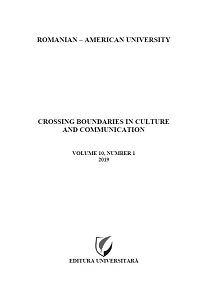El protagonismo de raíz indígena en la literatura
hispanoamericana de ayer y de hoy
The protagonism of indigenous roots in the old and contemporary Hispano-American literature
Author(s): Loredana MicleaSubject(s): Language and Literature Studies, Studies of Literature, Philology, Theory of Literature, Sociology of Literature
Published by: Editura Pro Universitaria
Keywords: universal elements; protagonism of indigenous roots; resurrection; initiation course; symbol;
Summary/Abstract: The protagonism of indigenous roots in the Hispano-American literature is the essential reformative symbol as through its veins runs the indigenous blood and has the responsibility, postulated by its predecessors, to use death and life as complementary concepts that start the resurrection of the soul, initially involving a spiritual reform. This is how the protagonist is reinventing himself, something similar to an individual, intimate act, but it is also easing a collective revival – of the people, symbolically – of the human being. Once the individual starts embracing its status, the community’s access to an ideal and enshrined space and time is possible; for example, the feminine figure is seen as being representative for the mythical ancestors so her features emerge as a sort of power dependent on community’s existence and works as a fertility symbol that has the capacity to create any possible life. The symbolism of resurrection, renewal, purification and impeccability as well as of initiation death are beautifully expressed in its understanding of all the four basic elements of the universe: water, earth, fire and air, as everything goes back to the essential cosmogeny, with the aim of resurgence, again and again, as human being or another form of manifestation of life.
Journal: Crossing Boundaries in Culture and Communication
- Issue Year: 10/2019
- Issue No: 1
- Page Range: 109-116
- Page Count: 8
- Language: Spanish

